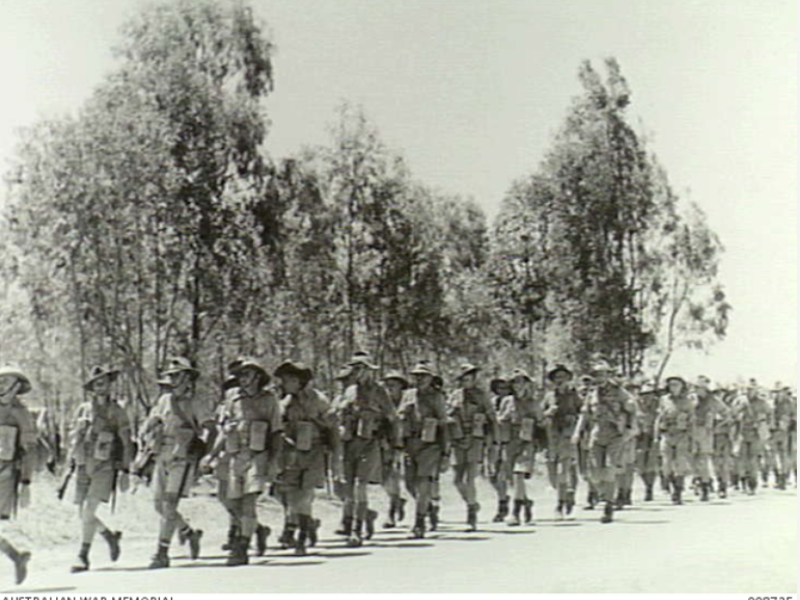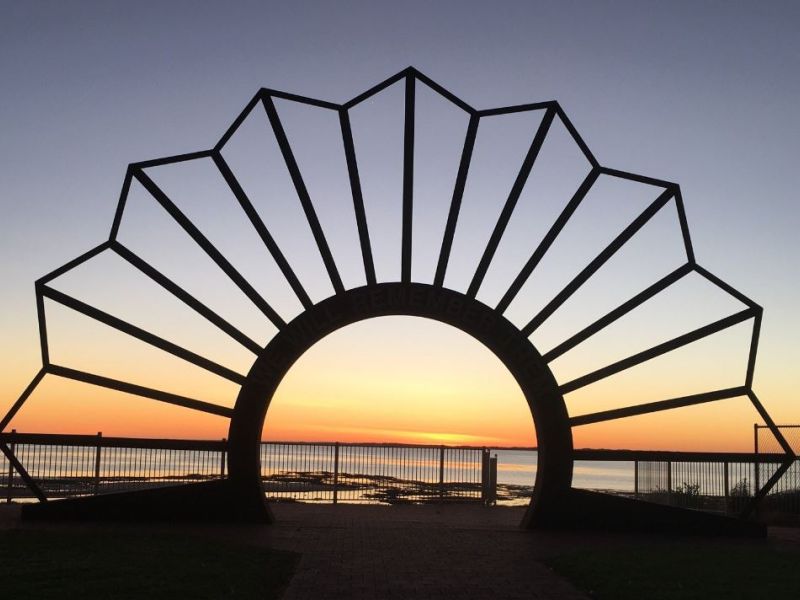Private Thomas Gray, 2/16th Battalion, AIF
Tom Gray was born on 14 April 1905 to Richard and Ida Vickers of Onslow, Western Australia. His father was a labourer and horse breaker in the district. His mother was an Indigenous woman whose family lobbied for citizenship for Aboriginal people. She was also a strong advocate of education as a way to gain acceptance in Australian society.
Tom developed a deep love of poetry and could recite more than a hundred poems. He became a drover and bushman, and wrote poetry, often on the sides of water tanks or old windmill blades.
By the mid-1930s, Gray was working at Anna Plains station as a respected racehorse trainer. He was gentle and patient with the horses, and in demand for his droving skills.
Unusually for someone of Aboriginal descent at that time, Gray became a relatively affluent and popular member of society in northern Western Australia. He had three children with two different women, making his home with Yarni at Anna Plains. He was well known for “his generosity of spirit, sense of humour and philosophical bent.”
Gray enlisted in the Australian Imperial Force in August 1940. To commemorate the occasion, he wrote a poem, part of which reads:
We’ve finished now with riding
Down those lonely cattle trails,
We’re through with swapping stories,
Watching riders from the rails;
The moelskins and the leggings,
That were sweaty, old and torn,
Are discarded for the glory
Of the khaki uniform.
Private Tom Gray joined the 2/16th Battalion reinforcements. He was a popular campmate; his comrades recalled him reciting poetry, such as “The Man From Snowy River”, and playing two-up.
Gray arrived in the Middle East in May 1941. Shortly after, they were withdrawn to Palestine to prepare for the invasion of Syria and Lebanon.
On 8 June 1941, the 2/16th Battalion took part in an attack against well-entrenched Vichy French troops. By early the following month, the battalion had fought its way to Damour in Syria.
On 6 July 1941, the Battalion were in an operation to capture the Vichy-held town and nearby fortified positions. Under heavy artillery barrage, they attacked and captured El Atiqa.
Private Gray was escorting some prisoners to the rear when he was spotted by an enemy machine-gun. He was fired on and killed instantly.
Gray was buried in the Beirut War Cemetery, under the words, “In loving memory. Sadly missed by mother, brothers and sisters.” He was 36 years old.
A poem written by Tom, Crosses was published after his death. It reads in part:
Each life has its crosses
And a soldier gets his share
From a trip across the ocean
To that envied Croix-de-Guerre.
There are crosses by the censor,
Far too many so it seems.
There are crosses in the letters
From the girlfriend of his dreams.
There’s a cross that’s worn by heroes
Who have faced a storm of lead.
There’s a cross when he is wounded.
There’s a cross when he is dead.
Meleah Hampton, Historian, Military History Section
- Australian War Memorial https://www.awm.gov.au/collection/C2695163

 Australian War Memorial
Australian War Memorial